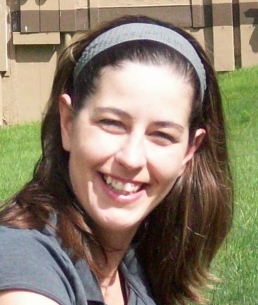
About Dawn Ross:
Dawn Ross is a daydreamer who has been perfecting her writing skills for over twenty years. With an imagination inspired by a few decades of fantasy/sci-fi books, movies, and television, she has created her own epic sci-fi full of rich characters in a vast universe. It all begins with StarFire Dragons, which Kirkus Reviews says is "A thoughtful novel that owes a debt to Star Trek but works on its own terms."
Dawn has a Bachelor of Science degree, cum laude meritum, in financial management. She also self-studies history, writing, and various sciences including astronomy and physics. Her character-focused stories include scientific elements such as space travel, space battles, fascinating worlds, cybernetic beings, and more.
You can find Dawn Ross's epic sci-fi series on Amazon in paperback or as an e-book.
What inspires you to write?
I've been daydreaming a sci-fi story in my head for years. When the saga grew too large to keep straight, I decided to write it all down. My first two books are just the beginning of many fantastic space adventures. Although I've read numerous sci-fi books and watched just about every sci-fi TV show and movie out there, my saga is heavily influenced by Star Trek.
What authors do you read when you aren’t writing?
I read numerous authors. There are so many great ones that it's difficult for me to pinpoint which ones are my favorite.
Tell us about your writing process.
I use the Plot dot to outline each story. I begin by writing 1-3 paragraphs for each dot. Then I break those down further, usually resulting in 40-55 chapters with about 1-2 paragraphs of notes. Once this is complete, I begin writing. I don't always stick to the outline. Oftentimes as I write, other ideas spark in my head. This means the outline is dynamic and I still have the freedom to explore the story and the characters.
For Fiction Writers: Do you listen (or talk to) to your characters?
My characters are much like my outline. I begin their creation with a detailed character journal that includes physical characteristics, personality traits, backstories, and what-if scenarios. Although this can be detailed, it really is just the foundation of who they are. Once I start writing the story, I let the characters take on a life of their own.
What advice would you give other writers?
Study the writing craft. Listen to your beta readers, especially if they are also writers. Sometimes their feedback are opinions, but oftentimes they have great advice to pass along. Hire an editor, possibly more than one kind of editor. Developmental editors can help make sure your story flows well and that it has all the proper elements to keep readers engaged. Content and line editors can help you with your sentence structures to make sure you tell your story in the best way possible. And copy editors will help make sure you don't have any spelling, grammar, or punctuation mistakes. I know editors can be expensive, but polishing your work is vitally important if you want to get the attention of an agent. It's also important if you're self-publishing. The last thing you want is to publish a piece that ends up getting terrible reviews.
How did you decide how to publish your books?
About twenty years ago, I wrote a fantasy series. I landed an agent, but she ended up cheating me out of about 10k. I've had a bad taste in my mouth about agents ever since. As such, I have taken the self-publishing route. I feel this is a better fit for me anyway, since my story probably doesn't fit into their small boxes of what they think a sci-fi should be. Sci-fi has broad potential but agents tend to make only narrow selections.
What do you think about the future of book publishing?
While publishing houses have been the primary gatekeepers when it comes to which books will be published, the ease of self-publishing is changing that. Now readers will get to be the gatekeepers. I think this is great because it gives writers the opportunity to write outside mainstream genres and reach niche readers. It has drawbacks, though. It means in order for indie authors to get known, they not only have to be able to tell a good story, they also have to know how to market themselves (or end up paying someone else to do it for them and risk getting cheated by businesses that only want to take advantage of them).
What genres do you write?: Epic fantasy and sci-fi, sub-genre space opera
What formats are your books in?: Both eBook and Print
Website(s)
Dawn Ross Home Page Link
Link To Dawn Ross Page On Amazon
Your Social Media Links
Goodreads
Twitter
All information in this post is presented “as is” supplied by the author. We don’t edit to allow you the reader to hear the author in their own voice.
